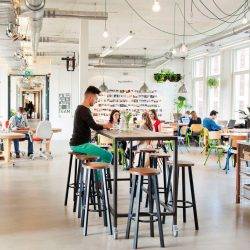July 17, 2019
Companies should respect their historic identity to thrive in the future
 Revisiting a company motto or philosophy is necessary in an ever-changing world, but it can disrupt people’s sense of “who we are” and should be carefully managed to ensure the firm continues to thrive in the future, according to new research from UCL School of Management. The study was based on the study of a large database of corporate mottos of long-established Japanese firms. It focused on 25 cases still in operation today, using a combination of archival and interview data to investigate when, why, and how they had revised their historical mottos in times of change. The findings are reported in an article forthcoming in the Strategic Management Journal. More →
Revisiting a company motto or philosophy is necessary in an ever-changing world, but it can disrupt people’s sense of “who we are” and should be carefully managed to ensure the firm continues to thrive in the future, according to new research from UCL School of Management. The study was based on the study of a large database of corporate mottos of long-established Japanese firms. It focused on 25 cases still in operation today, using a combination of archival and interview data to investigate when, why, and how they had revised their historical mottos in times of change. The findings are reported in an article forthcoming in the Strategic Management Journal. More →















 For decades the trend among workplaces has seen employees moving out of individual offices and into open plan spaces. This has not always been successful, with the open-plan approach
For decades the trend among workplaces has seen employees moving out of individual offices and into open plan spaces. This has not always been successful, with the open-plan approach 
 The use of technology to support communication and collaborative working in an increasingly digital and flexible world is something many of us recognise. However, a global study released today by
The use of technology to support communication and collaborative working in an increasingly digital and flexible world is something many of us recognise. However, a global study released today by 













July 2, 2019
A Turing Test for the workplace 0
by Mark Eltringham • Comment, Facilities management, Technology, Workplace, Workplace design